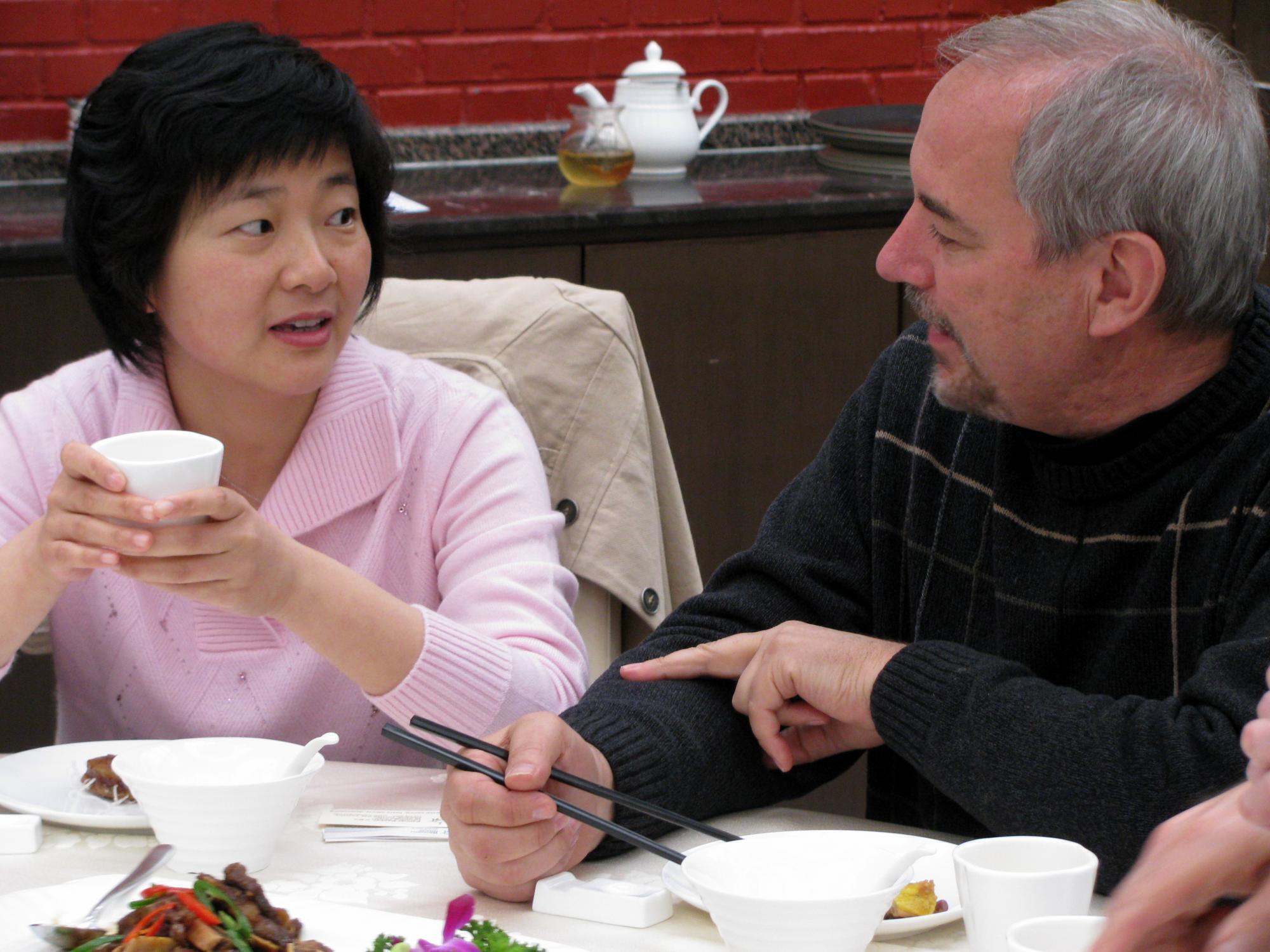The dangers of a "China vs U.S." worldview

Evidence of the rising power of China and the dangers of a bipolar China vs. U.S. battle for superpower dominance can be seen around the world. For instance, in May, I drove past hundreds of Chinese construction workers in Costa Rica building a China-funded highway. Dozens of shipping containers made up their roadside housing, each marked not in Spanish but with a Chinese character. Later that month, President Joe Biden traveled to South Korea to meet newly elected President Yoon Suk-yeol, who drew on growing public antipathy toward China in his campaign. This month, I was in Japan, where many voiced alarm about the Chinese government’s iron-fisted takeover of Hong Kong, asking whether Taiwan would be next.
My five years of experience in Northeast Asia as a representative of Mennonite Central Committee (MCC) prepared me for what I was hearing. Colleagues from Asia, Africa, and Latin America have told me that Chinese power is ubiquitous. In the Democratic Republic of Congo, for example, China and the U.S. are battling to dominate the world’s clean energy economy by controlling the mining of cobalt—a metal used in nearly every computer, cellphone, and electric car. And my advocacy work in New York City offers a front-row seat for United Nations battles between the U.S. and China which often paralyze the UN Security Council’s ability to address global challenges.
Fears about China have implications close to home. In a 2021 Gallup poll, 45 percent of Americans named China as the greatest enemy of the U.S. Whenever animosity against China rises up, Asian Americans are blamed and attacked. Hate crimes against Asian Americans increased 339 percent nationwide in 2021, according to the Center for the Study of Hate and Extremism.
Christian leader and sociologist Russell Jeung founded Stop AAPI Hate. “Sometimes we [Asian Americans] are the model minority,” Jeung told CBS News. “But in times of war, in times of pandemic, in times of economic downturn, we’re pushed out from being insiders to America to being outsiders of America. And so, we’re seen as perpetual foreigners.”
The relationship between China and the U.S. will impact the planet for decades. American Christians can make it more peaceable by living an alternative relationship. One concrete step is people-to-people exchanges. Chinese people in general know far more about the U.S. than most Americans know about China. Recognizing the difference in population size, many more Chinese are learning English and studying in the U.S. than there are Americans learning Mandarin Chinese or studying in China. Building relationships with Chinese students in the US can interrupt narratives of hostility and plant seeds for future peace.
From 2014 to 2019, I visited China many times as part of my work with MCC. There is a growing Chinese police state and dangerous suppression of Uyghur minorities. These are real. But, in light of my relationships with Chinese partners and church leaders, I can testify to the many Chinese people who want to build bridges and not walls.
Myrrl Byler, executive director of Mennonite Partners in China (MPC), is one of the leading Mennonite experts on China. MPC has brought more than 300 Chinese visiting scholars to U.S. schools and has sent more than 300 English teachers to China from the U.S. and Canada. In a 2021 interview, Byler discussed why peacemakers must be concerned with China. “A lot of peace institutions that I have worked with in North America have few or no China programs,” Byler said, “because there’s no civil society in China to partner with. But we can’t ignore China.” Byler told me that China “is the one place in the world where the conflict could be the greatest and we, the church, can’t go missing.”

